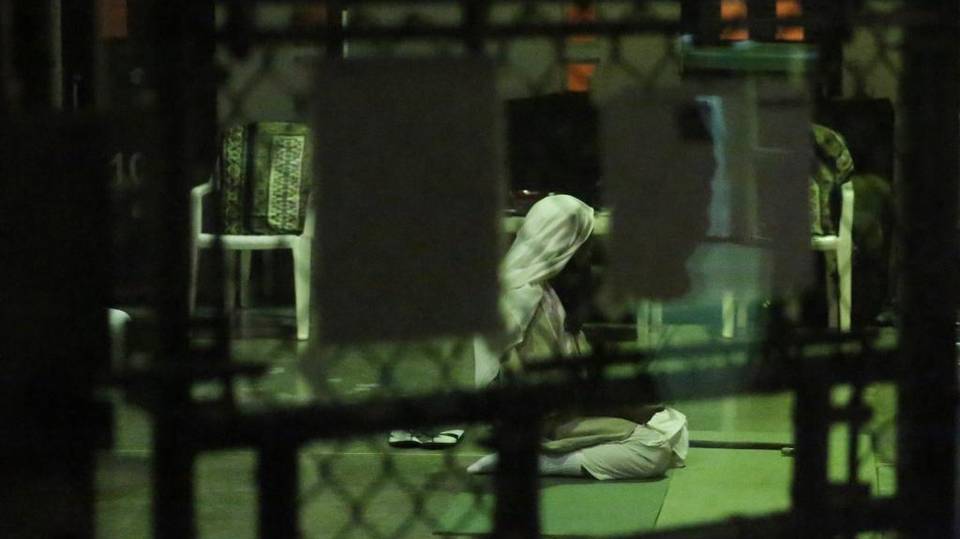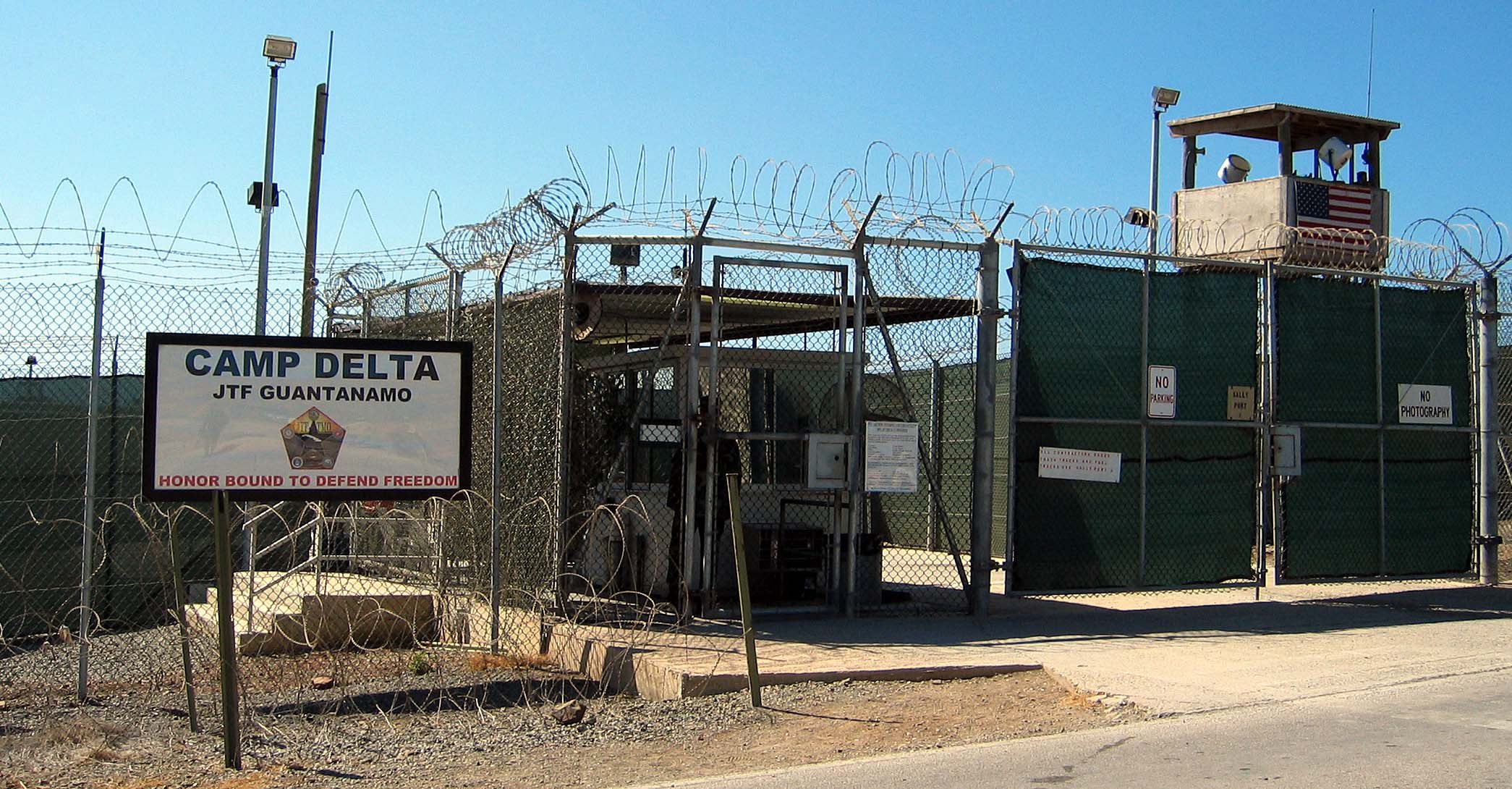
Holding Islamic State suspects at Guantánamo is still a viable option, Trump administration officials say on the heels of a U.S. appeal to other nations to take home their nationals who are among some 700 suspected foreign fighters held by a U.S. ally militia in Syria.
The remarks came two weeks after GOP senators Tom Cotton of Arkansas, John Cornyn and Ted Cruz of Texas, and Marco Rubio of Florida wrote President Donald Trump that the U.S. allied Syrian Democratic Forces were holding more than 700 “battle-hardened terrorists in northeast Syria.” They urged the president to “consider transferring the worst of these Islamic State fighters to the detention facility in Guantánamo Bay, where they will face justice.”
It is not clear what might constitute “justice” for these fighters. Most of the 40 detainees now held at Guantánamo are essentially forever prisoners of the so-called War on Terror. Just nine have been charged with war crimes and the rest are detained without criminal charge or trial.
On Monday, deputy State Department spokesman Robert Palladino issued a statement declaring the need for nations to repatriate and prosecute SDF-held foreign captives a “shared international security challenge.” The United States has dubbed the ISIS captives FTFs, for “foreign terrorist fighters.” He pointedly omitted mention of Guantánamo.
At the Pentagon, Navy Cmdr. Candice Tresch, spokeswoman for Detainee Policy, said Guantánamo detention remains an alternative to repatriation of captives now held by the Syrian Democratic Forces, a mostly Kurdish U.S. ally. It’s U.S. government policy “to encourage countries of citizenship to take responsibility for their FTFs through prosecution, rehabilitation programs, or other measures that sufficiently prevent detainees from re-engaging in terrorism,” Tresch said.
For those who can’t go home, she said, “President Trump has made clear that GTMO is one of the options that may be considered if appropriate.”
A State Department statement doubled down on the Department of Defense remark. “The administration’s National Strategy for Counterterrorism makes very clear that Law of Armed Conflict detention, including at Guantánamo, remains an important and effective counterterrorism tool.”
However, neither the Pentagon’s Detainee Affairs division nor the State Department’s Counterterror bureau would say whether the Trump administration had obtained a legal opinion on the authority of the United States to hold or try ISIS prisoners at Guantánamo Bay using Congress’ 2009 Military Commissions Act.
Nor would they say how many of the 700 prisoners that Palladino said the administration wants repatriated would be candidates for Guantánamo detention.
The prison that opened in January 2002 has only held al-Qaida and Taliban suspects and the military commissions created by Congress, before the emergence of ISIS, are limited to non-U.S. citizens who are accused of being part of al-Qaida. No new captive has been sent there since March 2008.
President Trump announced the signing of an executive order prior to the State of the Union which revoked his predecessor’s order to close the detention center at Guantanamo Bay and declared the prison open to new detainees. Image courtesy of McClatchy. United States, 2019.
This week’s appeal by the State Department to help relieve the SDF of its detainees is not new.
Last February, then Secretary of Defense Jim Mattis made similar requests of U.S. allies at a meeting in Rome of ministers of defense on how to defeat ISIS. “We’re gathering up hundreds now of detainees,” he told reporters. “My view is that the country of origin that they were citizens of bears some sense of responsibility.”
Mattis cast it as “an international problem,” declaring it would not be in anybody’s interest to free foreign fighters, specifically noting they should not be on the streets in Afghanistan, Belgium, France, India, Malaysia, Saudi Arabia, Tunisia and Turkey. He was essentially calling out those nations to accept repatriation of their ISIS-suspect citizens. In that Feb. 13, 2018, briefing Mattis pointedly declined to say whether sending the captives to Guantánamo might be a solution.
Most people think of Guantánamo as one gigantic prison. But there are many things you probably didn’t known about the U.S. Navy base that makes the place feel like a small town in America. Video by Jose A. Iglesias. Cuba, 2019




